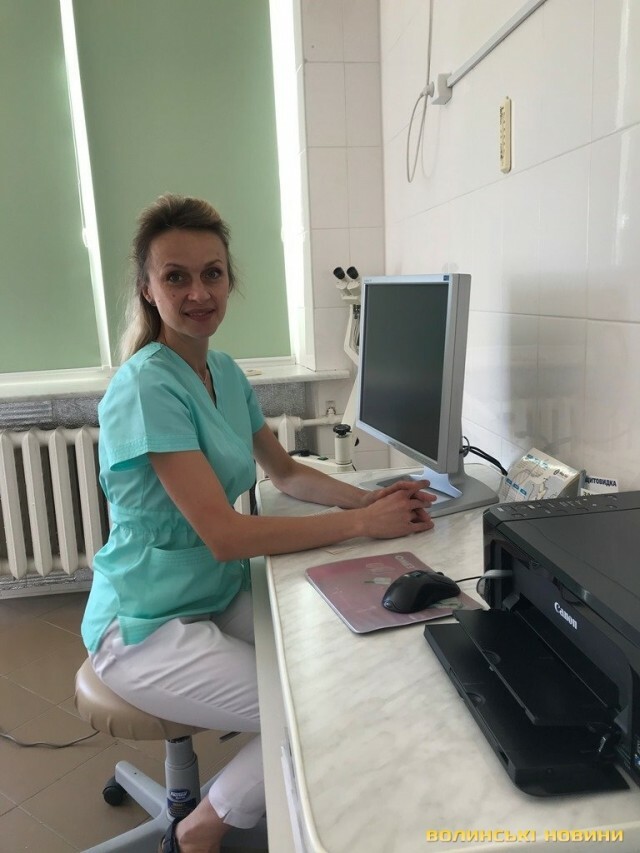Too often, a woman's body is compared to a clockwork: it tickles smoothly - so everything is fine with health, but as soon as there is even a small failure - our watch starts to work incorrectly and then it's time to run to the "watchmaker", ie gynecologist. One of the dangerous pathologies that destroy women's health - abnormal uterine bleeding - was discussed with the gynecologist of the Department of Emergency Gynecology of Lutsk City Clinical Hospital Olena Kropyvska.
What is abnormal uterine bleeding?
This is abnormal in volume, regular uterine bleeding (now we do not take into account pregnancy). Such bleeding is one of the main clinical symptoms of female genital disease, sometimes the first "bell" about a serious problem. Working in the department of emergency gynecology, I can say that this is one of the pathologies that most often deal with doctors in our department. Women are brought by ambulance and go to the admission department themselves, because the hospital is open 24 hours a day.
What are uterine bleeding? At what age do they occur?
Abnormal uterine bleeding can occur at any age - in adolescence, reproductive period, perimenopausal, menopausal and postmenopausal age. By the way, if such bleeding occurs in menopausal and postmenopausal age, it should alert a woman.
They are divided into types. Chronic uterine bleeding is abnormal in volume, regularity, and frequency over the past six months. These smears are not systematic, have no regularity, no clear volume. Acute may be new or chronic and requires immediate medical attention to prevent further blood loss. Severe is excessive menstrual blood loss, which negatively affects a woman's physical condition, social, emotional and material aspects of her life.
It is important to remember what the menstrual cycle is. He is clearly individual, but always has clear rules. Normally, it lasts from the first day of menstruation to the next from 21 to 35 days. The upper limit of lost blood is up to 80 ml. If it is larger, it is already losing iron, respectively, may develop iron deficiency anemia. The average duration of menstruation is four to five days, although up to seven days is allowed.
It is important that in addition to keeping a calendar when she comes to the family doctor about, for example, hypertension, tachycardia, weakness, etc., she has a questionnaire. The woman should answer four questions: "Does menstruation affect your daily activities?", "Do you have to change hygiene products at night?", "Are there blood clots larger than a centimeter in the discharge?", "Do you feel weak, short of breath, Increased fatigue? ”The doctor should also ask if the woman has ever been diagnosed with anemia. If she answers yes to at least one question, her doctor should suspect abnormal uterine bleeding. Because menstruation is a physiological process, not a disease, it should not knock a woman out of work and affect the quality of life.
Why do uterine bleeding occur in girls aged 15-18?
Adolescent girls and the nervous system are still immature in adolescence. They are very sensitive. And during this period, girls begin to lose weight, take exams, go to the gym and have excessive physical activity, in the end, use contraceptives uncontrollably. Alcohol and smoking also have a big impact. Lifestyle and quality of food are important.
What are the causes of abnormal uterine bleeding?
The International Association of Obstetricians and Gynecologists has adopted a unified protocol, which we have been working on since 2016. So, we clearly separate the 9 causes of abnormal uterine bleeding. The first four are due to clearly organic pathology. These are polyps, adenomyosis, uterine fibroids and hyperplasia. The following five causes are not related to organic pathology, they are functional. These can be coagulopathies, usually some congenital, hereditary diseases. Then - ovulatory dysfunction, endometrial dysfunction, use of anticoagulants, corticosteroids, antidepressants. Women aged 42-45 and older already have a number of comorbidities, this should be taken into account. Family history is very important, our genetics are almost in the foreground. In addition, there are idiopathic, ie unknown causes of this bleeding.
How is this pathology diagnosed?
When a woman applies, we start with a history and examination. Skin color and general condition are important. During the examination, the doctor takes swabs for cytological examination, flora, infections. A general blood test is also done to screen for anemia. If necessary, prescribe other studies (thyroid hormones, etc.). Ultrasound examination can assess the condition of the endometrium (the presence of polyps, hyperplasia, fibroids, etc.). Hysteroscopy with targeted biopsy is considered the gold standard. By the way, it is conducted in our department by high-class specialists on modern equipment. I would like to note that thanks to the management of the Lutsk City Clinical Hospital, our department is equipped with equipment that meets all international standards, and this greatly helps physicians in the fight for the health of patients. Indications for hysteroscopy - abnormal uterine bleeding, age over 40 years, obesity, lack of childbirth, if there is a family history of colorectal cancer. This allows us to rule out precancerous diseases and endometrial cancer.
What treatments do you use?
We work in two directions. The first is to stop the bleeding, the second is to prevent recurrence. But everything is individual. It depends on the patient's age, the associated pathology, whether the woman is planning to give birth or not, as well as the presence of contraindications. Methods of treatment can be medical - hormonal and non-hormonal, as well as surgical. Of course, if it is a fibroid or polyp, surgical treatment should be considered.
We are open to communication, the patient can come, consult a doctor, he will offer alternative methods of examination and treatment. And let me remind you: remember that it is easier to prevent a disease than to cure it, so do not delay a visit to the doctor and undergo medical examinations not for a tick, but for yourself.
